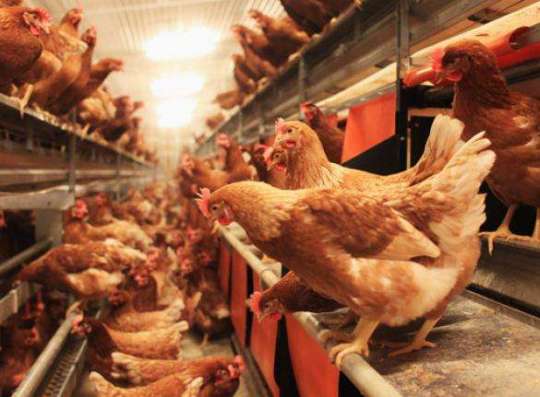By Rashidatu IBRAHIM
President Nana Akufo-Addo has reaffirmed his government’s dedication to bolstering the poultry industry in Ghana, aiming to reduce the country’s reliance on chicken imports, which has been weighing heavily on the national currency. This commitment comes as part of the second phase of the Planting for Foods and Jobs (PFJ) programme. The President highlighted the need for increased domestic production to curb poultry imports during his State of the Nation Address in Parliament on February 27.
President Akufo-Addo emphasised that while production targets have been exceeded for most agricultural products under the PFJ, poultry remains an area requiring special attention. He stressed the importance of achieving domestic production goals in poultry for the year 2024 and beyond to alleviate the dependence on imports. The President underscored the necessity of collaboration between the government and the private sector to realise these objectives effectively.
The second phase of the PFJ, initiated last year, outlines a five-year plan to enhance food self-sufficiency and resilience in Ghana. Strategic targets have been set for eleven priority products, including maize, rice, soybean, sorghum, tomato, pepper, onion, cassava, yam, plantain and poultry, spanning different time-frames up to 2028.
President Akufo-Addo highlighted large-scale farming as a key strategy for achieving food self-sufficiency and announced plans to establish Agricultural Zones across the country. These zones aim to address challenges related to access to agricultural land and promote sustainable and commercially-oriented agriculture, particularly focusing on products like rice, soybean, maize, and tomato.
Furthermore, the President expressed optimism about the decline in rice imports from 2021 to 2023, indicating a positive trend toward self-sufficiency in rice production. To make agriculture more appealing to the youth, the government plans to facilitate access to agricultural machinery and equipment, including tractors and harvesters, through initiatives like the Indian Exim Facility.
Overall, the government’s efforts are geared toward enhancing domestic production across various agricultural sectors, particularly poultry, to reduce reliance on imports and ensure food security and economic prosperity for the nation.










